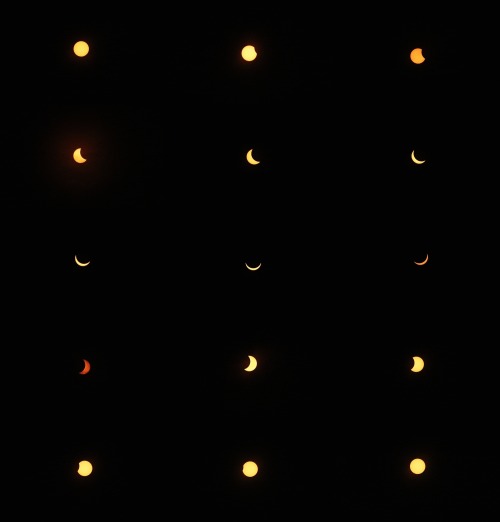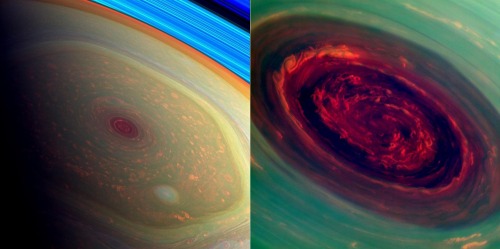Solar System: Things To Know This Week
Solar System: Things to Know This Week
Here are a few things you should know about our solar system this week:
1. The Bright and the Beautiful

In its lowest-altitude mapping orbit, at a distance of 240 miles (385 kilometers) from Ceres, Dawn has provided scientists with spectacular views of the dwarf planet, especially of its bright, young, hexagonal craters like Haulani.
2. Mars Needs Brains

NASA is soliciting ideas from U.S. industry for designs of a Mars orbiter for potential launch in the 2020s. The satellite would provide advanced communications and imaging, as well as robotic science exploration, in support of NASA’s Journey to Mars. This effort seeks to take advantage of industry capabilities to improve deep space, solar electric propulsion-enabled orbiters.
3. Seeing Double

NASA measured a solar flare from two different spots in space, using three solar observatories. During a December 2013 solar flare, three sun-observing spacecraft captured the most comprehensive observations ever of an electromagnetic phenomenon called a current sheet.
4. Set a Course for Europa

This artist’s rendering shows NASA’s Europa mission spacecraft, which is being developed for a launch in the 2020s. The mission would place a spacecraft in orbit around Jupiter in order to perform a detailed investigation of the giant planet’s moon Europa—a world that shows strong evidence for an ocean of liquid water beneath its icy crust and which could host conditions favorable for life.
5. Go Deep

Jupiter is huge, powerful and spectacular. But what lies hidden inside the giant planet? The Juno mission arrives at Jupiter in July to help us find out. Join Dr. Fran Bagenal to learn more about the mission and how it plans to delve deep into Jupiter’s secrets this year.
Want to learn more? Read our full list of things to know this week about the solar system HERE.
Make sure to follow us on Tumblr for your regular dose of space: http://nasa.tumblr.com
More Posts from Intergalacticnerd and Others







RIP <3


Saturn’s hexagonal storm system in it’s north pole
Dust, stars, and cosmic rays swirling around Comet 67P/Churyumov–Gerasimenko, captured by the Rosetta probe. (Source)
Solar System: Things to Know This Week
Here are a few things you should know about our solar system this week:
1. Gearing Up for a Grand Finale

There’s just a year left until the Cassini mission begins its Grand Finale – the final phase of its mission, during which the spacecraft will dive repeatedly between the planet and the rings. To get ready, the Cassini team has launched an enhanced, mobile device-friendly version of the mission website. The site includes information about Cassini, Saturn, the moons and the rings – but it also tells the human stories behind one of the most ambitions expeditions of all time.
2.Caught in Transit

On Monday, May 9, the planet Mercury will cross directly in front of the sun, an event that hasn’t occurred since 2006 and won’t happen again until 2019. Find out how to watch HERE.
3. A Moon for Makemake

Our Hubble Space Telescope has spotted a small, dark moon orbiting Makemake (pronounced “MAH-kay MAH-kay). Make make is the second brightest icy dwarf planet – after Pluto – in the faraway Kuiper Belt.
4. The Age of the Aquarids

The Eta Aquarid meteor shower is the first of two showers that occur each year as a result of Earth passing through dust released by Halley’s Comet. This year, it should peak on the night of May 5/6. Get tips for watching HERE.
5. The Southern Lights of Saturn

On May 4, Cassini will reach periapse, the closest point to Saturn in the spacecraft’s orbit. At about this time, Cassini’s cameras will monitor Saturn’s south polar aurorae, and also image the bright limb of the planet to better understand its upper haze layers.
Want to learn more? Read our full list of the 10 things to know this week about the solar system HERE.
Make sure to follow us on Tumblr for your regular dose of space: http://nasa.tumblr.com

Psychedelic Pluto : New Horizons scientists made this false color image of Pluto using a technique called principal component analysis to highlight the many subtle color differences between Plutos distinct regions.
js


M7, Open Star Cluster






-
 the-orangeauthor liked this · 4 years ago
the-orangeauthor liked this · 4 years ago -
 fishyneko liked this · 7 years ago
fishyneko liked this · 7 years ago -
 blindmetaleye liked this · 8 years ago
blindmetaleye liked this · 8 years ago -
 alostandlonelygirl liked this · 8 years ago
alostandlonelygirl liked this · 8 years ago -
 sidcam liked this · 8 years ago
sidcam liked this · 8 years ago -
 doublej38 liked this · 8 years ago
doublej38 liked this · 8 years ago -
 bic3 liked this · 8 years ago
bic3 liked this · 8 years ago -
 shamrock-clover-lover-blog reblogged this · 8 years ago
shamrock-clover-lover-blog reblogged this · 8 years ago -
 shamrock-clover-lover-blog liked this · 8 years ago
shamrock-clover-lover-blog liked this · 8 years ago -
 jeffafa62 liked this · 8 years ago
jeffafa62 liked this · 8 years ago -
 lost-locket liked this · 8 years ago
lost-locket liked this · 8 years ago -
 howstrangethemusicsoundstome reblogged this · 8 years ago
howstrangethemusicsoundstome reblogged this · 8 years ago -
 howstrangethemusicsoundstome liked this · 8 years ago
howstrangethemusicsoundstome liked this · 8 years ago -
 timeladythewarden reblogged this · 8 years ago
timeladythewarden reblogged this · 8 years ago -
 nidesboy-blog liked this · 9 years ago
nidesboy-blog liked this · 9 years ago -
 rjbailey reblogged this · 9 years ago
rjbailey reblogged this · 9 years ago -
 rjbailey liked this · 9 years ago
rjbailey liked this · 9 years ago -
 aualmarrah liked this · 9 years ago
aualmarrah liked this · 9 years ago -
 deltaperseii liked this · 9 years ago
deltaperseii liked this · 9 years ago -
 nadiayuffi reblogged this · 9 years ago
nadiayuffi reblogged this · 9 years ago -
 carlosalberthreis liked this · 9 years ago
carlosalberthreis liked this · 9 years ago -
 alicerobertstext reblogged this · 9 years ago
alicerobertstext reblogged this · 9 years ago -
 ilovespacetravel-blog liked this · 9 years ago
ilovespacetravel-blog liked this · 9 years ago -
 grisel-herxx liked this · 9 years ago
grisel-herxx liked this · 9 years ago -
 fionaahutton liked this · 9 years ago
fionaahutton liked this · 9 years ago -
 cyclic-origin reblogged this · 9 years ago
cyclic-origin reblogged this · 9 years ago -
 pulsaresyquasares reblogged this · 9 years ago
pulsaresyquasares reblogged this · 9 years ago -
 pulsaresyquasares liked this · 9 years ago
pulsaresyquasares liked this · 9 years ago -
 sum1amazeballs-blog liked this · 9 years ago
sum1amazeballs-blog liked this · 9 years ago -
 strix-scandiaca reblogged this · 9 years ago
strix-scandiaca reblogged this · 9 years ago -
 imatypicalnerd reblogged this · 9 years ago
imatypicalnerd reblogged this · 9 years ago -
 mangetsunoyoru liked this · 9 years ago
mangetsunoyoru liked this · 9 years ago -
 nostalgicneptune liked this · 9 years ago
nostalgicneptune liked this · 9 years ago -
 intergalacticnerd reblogged this · 9 years ago
intergalacticnerd reblogged this · 9 years ago -
 kamenev reblogged this · 9 years ago
kamenev reblogged this · 9 years ago -
 polarizeyoursoul-blog reblogged this · 9 years ago
polarizeyoursoul-blog reblogged this · 9 years ago -
 antimony-ammonites reblogged this · 9 years ago
antimony-ammonites reblogged this · 9 years ago
"Astronomy compels the soul to look upwards and leads us from this world to another." - Plato
147 posts